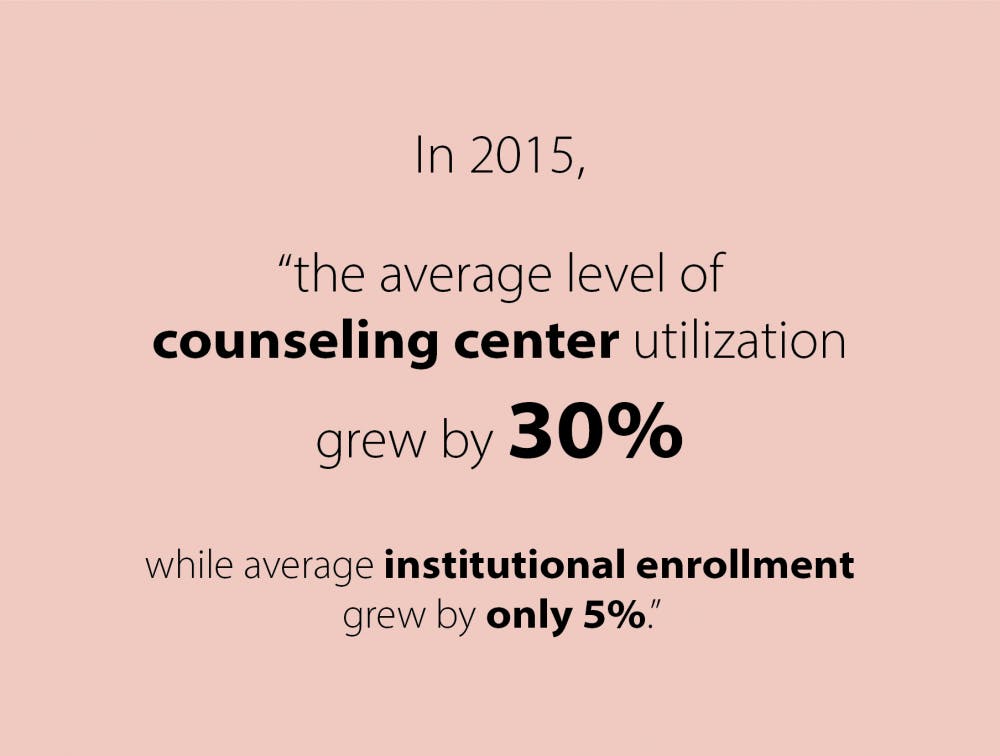Content warning: This article contains graphic depictions of suicide and mental health.
.
.
.
.

.
.
.
.
Clarification: This story has been updated to clarify the title of a source confirming suicides at App State.
Jen received a late-night text from a friend from high school, a student at UNC. He said he wanted to end his life.
Jen, a student at Appalachian State University whose name has been changed for anonymity, reached out to other friends at UNC to see what resources were available, especially ones that could be used during an emergency at night.
She and her friends found instructions to call 911, go to a local emergency room or call UNC Police. Other instructions included descriptions of UNC’s Counseling and Psychological Services walk-in hours and listings for the National Suicide Prevention Lifeline.
Though her friend was able to get support that night, she feared the worst. According to a student employee with knowledge of the situation at App State, there have been two suicides on their campus this academic year.
Chris Hogan, the director of the Counseling and Psychological Services Center at App State, said he felt that students have great access to services and are able to see someone the same day they come in.
He said there are a number of services students can access in the event they need help, both during normal business hours and over weekends and holidays. He said after hours, students can call the counseling center number and be connected to the counselor on call at that time.
The counseling center at App State saw 2,500 students in the 2017-18 academic year, which is almost 1,000 more than numbers five years ago, he said.
App State received $19,150 for training in prevention programs from the North Carolina Chapter of the American Foundation for Suicide Prevention in January 2017.
Hogan said he could not confirm reports of any suicides on App State’s campus this year.
“A lot of times I don’t even know what has happened,” he said. “The way that it works is, if there is a student death, that goes to the medical examiner and that information goes to the family.”
To get the day's news and headlines in your inbox each morning, sign up for our email newsletters.
He said sometimes App State won't get the information, and in any event when there is a student death, officials will treat the death similarly due to their lack of knowledge of the circumstances.
He said officials will likely not share a wide communication with students and will mainly only reach out to those closely connected to the student who died and focus on postvention procedures, or aftermath care.
Within the past four years, two students have died in two different residence halls at UNC.
Allen O’Barr, the director of Counseling and Psychological Services at UNC, said in the event of incident on campus like these, CAPS is generally right on the scene and will work with the Dean of Students to make services available to those who need them.
“For instance, the Morrison event, I was there within five minutes after it happened,” he said. “We try to get to the scene immediately.”
He said CAPS has placed a focus on front-loading their resources so students who come in can be seen that same day, something he said UNC was on the cutting edge of doing as an institution.
In the 2017-18 academic year, O'Barr said at UNC, CAPS saw 14.5 percent of the University population and primary care saw 2.5 percent regarding mental health-related issues.
He said the percentage is high when compared to other colleges and universities, but he said this is likely due to the allocation of resources and being able to see students quicker.
The Center for Collegiate Mental Health found in their 2015 report that counseling center usage increased by 30 percent over five years, while average institutional enrollment grew by only 5 percent.
He said the resources required to serve the campus are increasing every year, and that CAPS has extended their resources as far as they can with what they have.
He said a task force has been set up by the University to review mental health and make recommendations for next steps, which should come in the near future.
O'Barr said he feels those facing suicidal thoughts have been served well, even when some individuals facing recurring suicidal ideation and trauma recovery have to be referred outside of CAPS based on their needs.
He said the issue is not a matter of CAPS' capacity to help, but rather students' need for longer term care.
O'Barr also said those feeling like they haven’t been served well because they have to be referred out is something CAPS is aware of, and is one of the primary things the task force is seriously looking at.
“That’s been an ongoing issue for years,” he said. “We see as many people as we can but we just don’t have the resources to see everyone.”